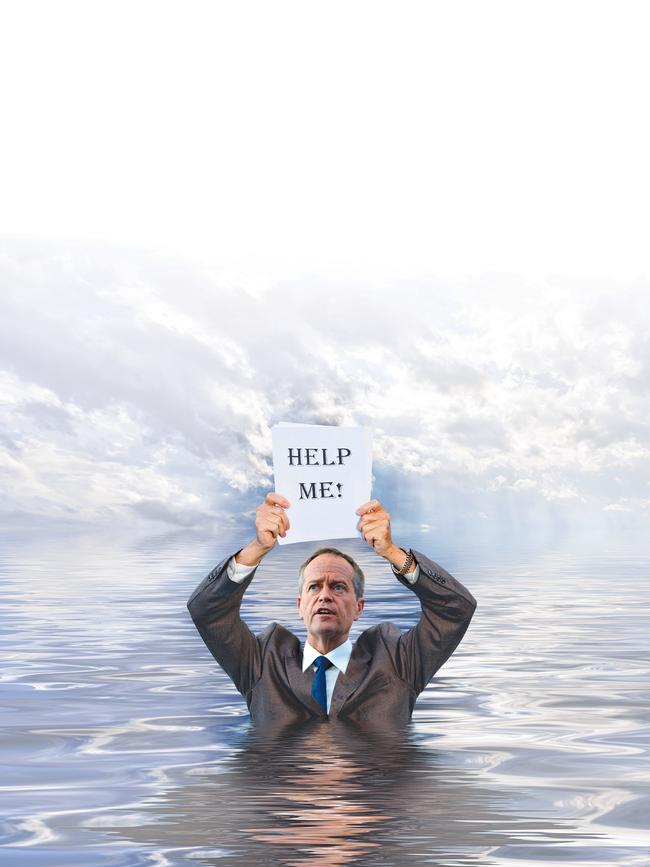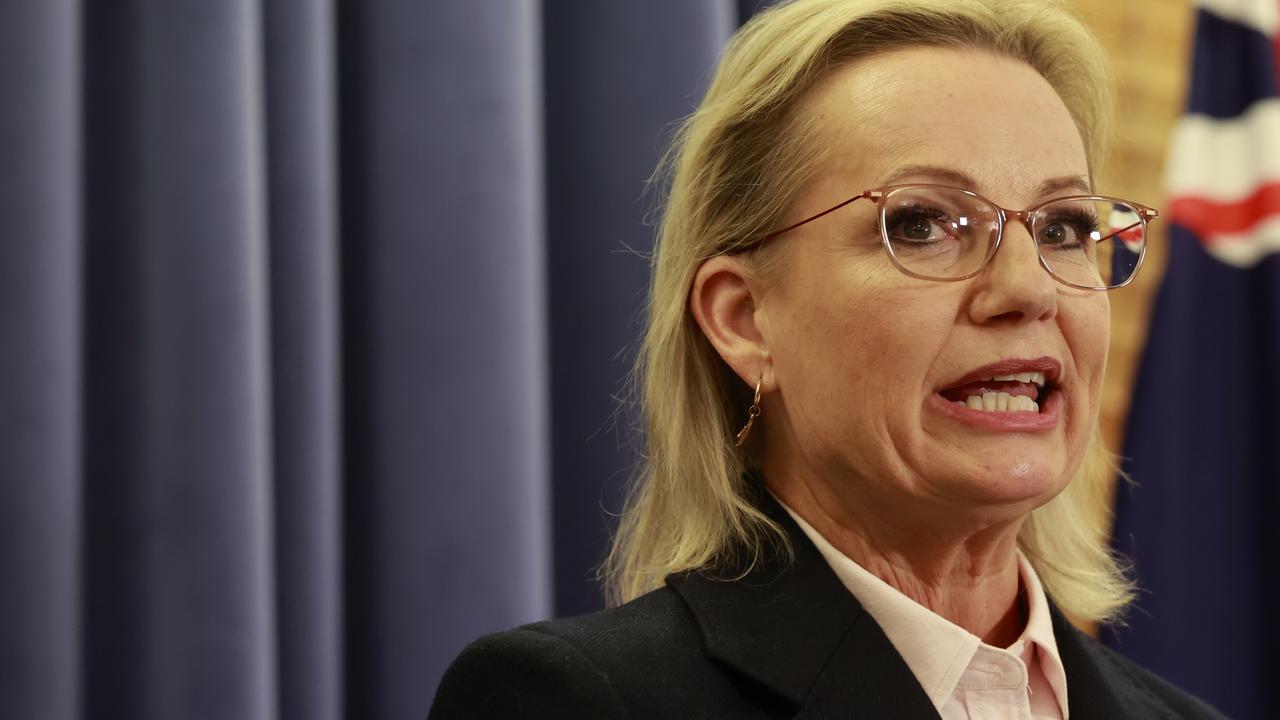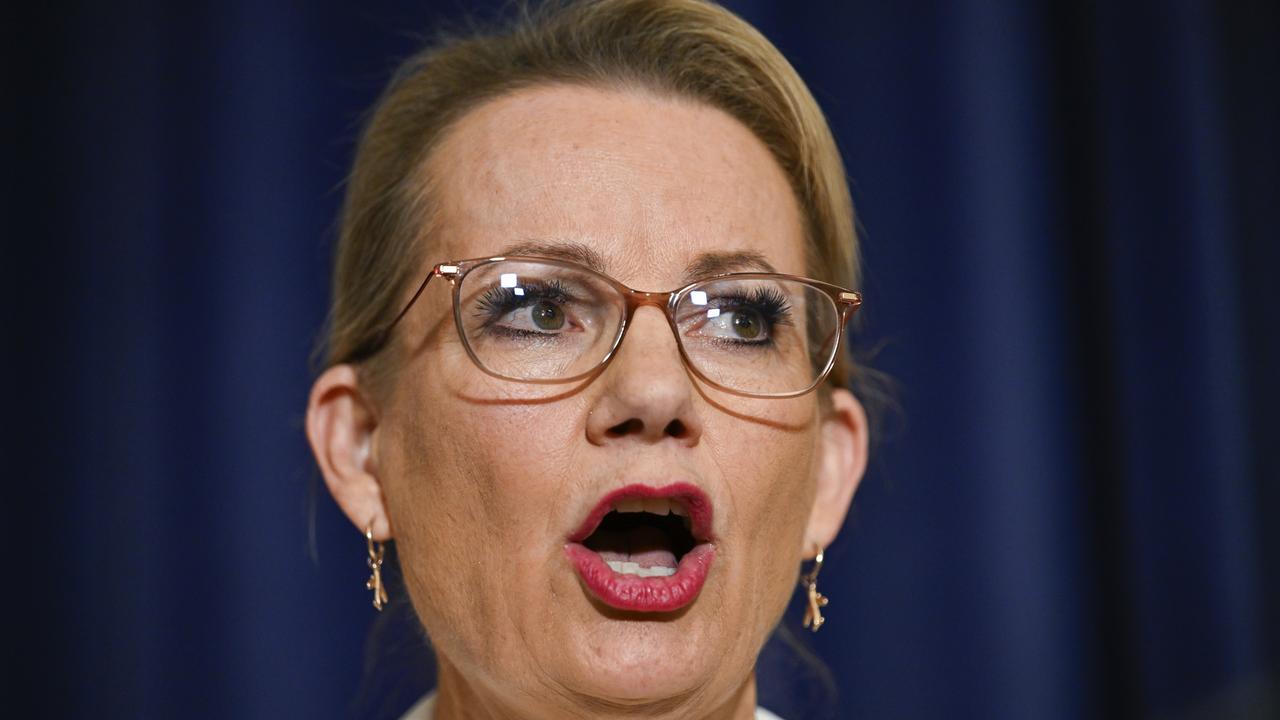Left holding the Bill: The Lucky Country is a fool’s paradise
IN this campaign, Bill Shorten’s embrace of Leftist tax-and-spend economics has turned Labor into a party of deficits in perpetuity, says Mark Latham.
Analysis
Don't miss out on the headlines from Analysis. Followed categories will be added to My News.
ONE of the mysteries of Australian politics is why the Liberal Party in power never lives up to its small government rhetoric. This is a problem going back to the 1970s.
In opposition, through the Fraser, Howard and Abbott eras, the Liberals pledged to wind back the welfare state and the decisions of high-taxing, high-spending Labor governments. Yet these promises were not worth a cracker.
There was a time, in the PG period (Pre-Gough), when Commonwealth revenue as a proportion of GDP was below 20 per cent (19.6 in the 1972-73 Budget). Three years later, after a burst of Whitlamism, it was 22.5 per cent. Post-1975, how did Malcolm Fraser fare in implementing his Ayn Rand-inspired small government ethos?
In his government’s last Budget (in 1982) Commonwealth revenue reached 24.1 per cent of GDP.
The Howard government had a similar experience: inheriting revenue at 23.5 per cent in 1995-96 but increasing it to 25.0 per cent by 2007-08.
The Abbott-Turnbull government has also expanded the Commonwealth’s reach into our pockets, with this month’s Budget figures projecting revenue as a proportion of GDP to rise from 22.7 per cent in 2013-14 to 25.1 per cent in 2019-20.
Never have so many conservative politicians bellowed so loudly about the need for austerity, yet devised so many ways of collecting taxes to fund an ever-larger public sector.
What happened to these Liberals on the way to the fiscal forum? How did they start their time in office as resolute Friedmanites yet end it as bloated Keynesians?
As you might expect, I have a theory. It’s called interest group capture. History tells us that conservative governments are more political than ideological. They like the idea of reducing the size of government but can’t stomach the inevitable backlash from aggrieved sectional interests.
In the nature of modern politics, the problem is steadily getting worse — snowballing from its own largesse. Every time governments concede the need for new spending programs, they create a new generation of publicly funded lobbyists, social workers, academics, facilitators, publicists and other hangers-on, all wanting to expand their newly established foothold in the federal Budget.
These activists have been remarkably effective in making themselves appear indispensable to the success of society. They produce lots of reports, generate lots of publicity and hold lots of meetings with politicians and staffers.
Eventually, as governments cave in to their demands, extra resources are generated for further lobbying and special pleading. And so the cycle continues. There was a time when governments restricted their spending to the basic functions of national security, income support and service delivery.

The recent trend is to create what I call FAB programs: trying to control the Feelings And Behaviour of individuals. Politicians want us to feel FAB in our family lives, with taxpayer-funded advertisements warning us of how little white boys are bound to become wife-bashing criminals. At night, they don’t want us to stay up too late in the centre of Sydney.
Governments also want us to stop worrying too much, so we feel FAB in our thinking. Huge amounts of public money are being spent on anti-anxiety pills and programs — an example of the medicalisation of normality.
In the 2010-13 Parliament Julia Gillard, with her attachment to Leftist identity politics, created dozens of new FAB agencies and schemes. Mostly they are staffed by neo-Marxist types trying to re-engineer society on the basis of race, gender, sexuality and mental health. Incredibly, the Liberals have kept them all.
Australia’s First Lady, Lucy Turnbull, has even become an ambassador for one of them, Our Watch, which tries to control the media’s reporting of violence against women. It has urged newspapers to “take the emphasis away from stranger danger” — sticking stories about suburban predators on page 34 instead of page one, thereby making neighbourhoods less safe for females.
Does Mrs Turnbull really know what she’s endorsing at this Orwellian propaganda unit, Our Watch?
Despite complaining about the age of entitlement in opposition, the Liberals have maintained the wasteful spending of the Rudd-Gillard era, and then added their own. Scott Morrison’s Budget has projected large real expenditure increases over the next four years in the major areas of Commonwealth entitlement: 15.6 per cent in social security, 13.7 per cent in education, 9.7 per cent for health and 6.4 per cent in defence.
I’ve called defence an entitlement portfolio as projects such as the $50 billion submarine build are largely a welfare handout to prop up South Australia’s inefficient economy.
In total, social security, education, health and defence make up 58 per cent of the federal Budget.
With spending in these areas rising sharply, it’s impossible to bring Australia’s deficit problem under control.
Labor and Liberal have combined to blow the budget, at a time when economic growth is sluggish and the last CPI number was deflationary.
Despite massive fiscal stimulus in recent years and substantial monetary policy stimulus from record-low interest rates, prices in the March quarter fell. The problem with deflation (if it continues for the remainder of the year) is that it encourages consumers to delay purchasing decisions, given their expectation of falling prices into the future.
Due to a failure of political leadership, the Australian economy is dangerously exposed to either a downturn in local demand or another global financial meltdown.
We lack the fiscal buffer of surplus budgeting to fight back against these risks. How is it, after 25 years of continuous economic growth, we have become so exposed and so complacent?
Yes, our politicians are to blame but so, too, our public culture has become weak and self-indulgent.
Every day, media commentators are inventing new crackpot spending ideas and welfare entitlements.
Too many voters have forgotten what it’s like to experience a recession and double-digit unemployment.
They think we can continue to live beyond our means indefinitely.
History tells us that complacent nations inevitably receive an economic jolt for which they are hopelessly underprepared. I’m worried that we will look back on election 2016 as a landmark missed opportunity.
The Liberals in opposition promised to solve the budget emergency but then failed in government.
The ALP, with its close links to public sector unions and interest groups, hasn’t delivered a surplus Budget since 1990.
In this campaign, Bill Shorten’s embrace of Leftist tax-and-spend economics has turned Labor into a party of deficits in perpetuity.
The Lucky Country has become a fool’s paradise.


